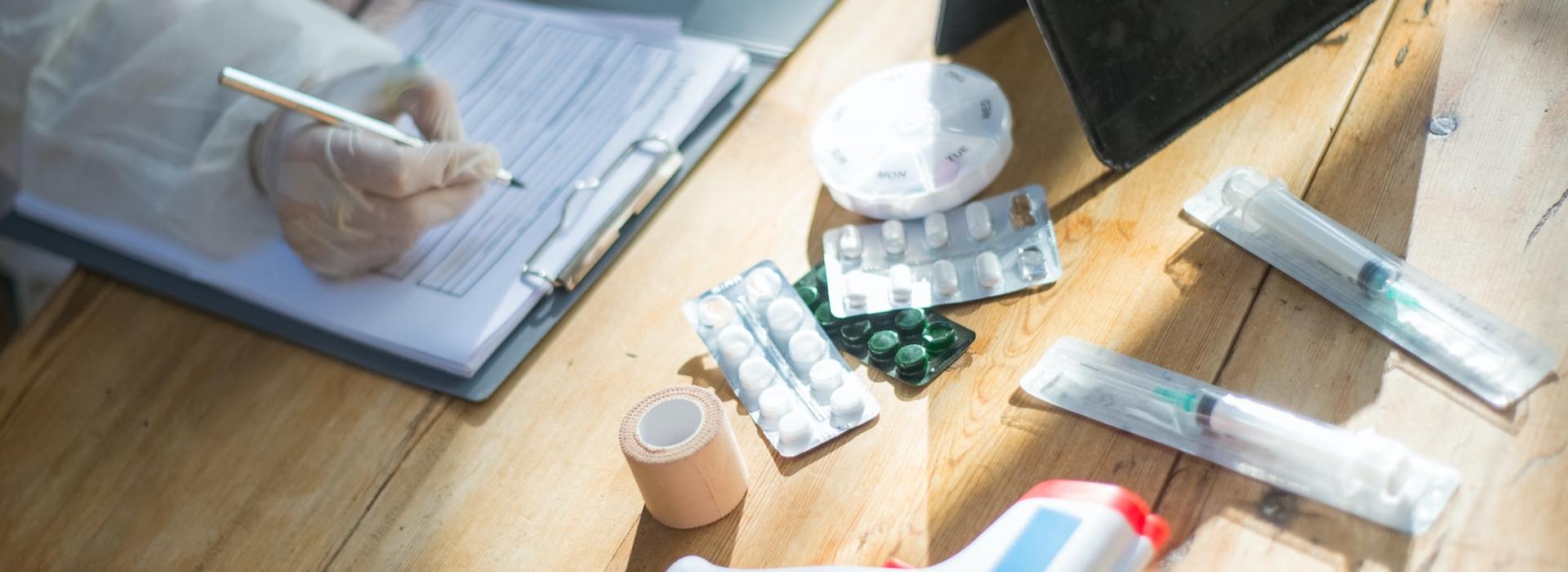
COVID-OUT clinical trial seeks early treatment to prevent severe COVID-19 disease
COVID-OUT clinical trial seeks early treatment to prevent severe COVID-19 disease
Launched in January 2021, University of Minnesota Medical School researchers compared effectiveness of ivermectin, fluvoxamine and metformin in randomized double-blinded placebo-controlled trial treating COVID-19
Read time: 5 minutes
The COVID-OUT trial led by University of Minnesota Medical School researchers and the School of Public Health, was the first in the U.S. to study and understand if any of these drugs can prevent severe COVID-19 disease. The study results suggest that metformin decreases the likelihood of emergency visits, hospitalizations, or death due to COVID-19. The study found that neither ivermectin nor fluvoxamine decreases the chances of ER visits or hospitalization from COVID-19.
Metformin is a readily available drug that treats high blood sugar levels caused by type 2 diabetes. The study found that if prescribed early at the start of symptoms, it can lower the chance of severe COVID-19 disease by over 50 percent. The effectiveness of metformin treatment of COVID-19 was compared to treatments of ivermectin and a low dose of fluvoxamine.
The study included adults aged 30-85 who tested positive for SARS-Cov-2 three days prior and had a body mass index greater than 25 kg/m2. Patients received one of the three medicines, a combination of the three medicines, or a placebo. The patients kept track of their symptoms daily and completed a survey after day 14.
Through observational studies and computer modeling, the results of the study identified that metformin was more likely to decrease hospitalization and the likelihood of mortality from COVID-19. These findings significantly add to the body of knowledge around COVID-19 treatment.
Learn more about the study at covidout.umn.edu
Here are other resources featuring important work we did on COVID-19:
U of M researchers find cohorting patient care model during pandemic improved patient outcomes
Published in JAMA Open, University of Minnesota Medical School researchers found that, during the extenuating circumstances of an emerging pandemic, grouping patients together in one area or facility was successful in providing high-quality care and containing infectious patients.
At the Speed of ‘Pandemic’
Which Emerging, Expeditious Processes for Clinical Trials the U of M Medical School will Keep and Grow
Minnesota as a Learning Health System
United States per capita healthcare spending is more than two times the average of other developed nations, yet health outcomes are generally no better, and in some cases are worse. The University of Minnesota Center for Learning Health System Sciences (CLHSS), a partnership between the Medical School and the School of Public Health that launched in August 2021, aims to address some of these challenges by leveraging existing evidence, gathering new knowledge from care delivery and rapidly implementing innovations into direct population health action.
U of M receives NIAID grant to develop drug treatments for future viral pandemics
The University of Minnesota has received $66 million from the National Institute of Allergy and Infectious Diseases (NIAID) to establish a center to develop antiviral drugs for pandemic-level viruses, including SARS-CoV-2.